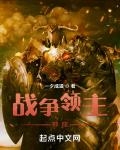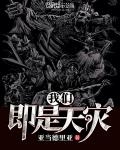Chapter 271: Careless Attack
Just as Malbert guessed, Leon was indeed no longer in Ashcomb at the moment.
Leon didn't care about the fleet of the Bacchus Empire at all. He left most of the merchants in Madan and Ashcoman, and led a large army to the southwest.
The merchants were not panicking. In their opinion, since Lord Leon would continue to send troops abroad, he must be confident that Eshkman would be safe. It must be said that this simple judgment of the merchants was the most correct.
Of course, Leon didn't need to worry about the Bacchus fleet. Emperor Marius was his ally, and that fleet was flying under the banner of General Agathon. Even if the two sides were not allies, Agathon would not do something like robbing merchants. He couldn't even bring himself to plunder the land.
Right now, Leon is in the southwest of Ashcoman, in a place called 'Fondar'.
This place is not in the desert, but a town built in a grassland, surrounded by the best pastures in the whole of Desha.
The grassland where Fangdar Town is located is the horse breeding ground of the Desha Principality and the birthplace of the "Ghazi Raiders" and "Ghazi Archers".
There is a huge mountain to the south of Ashkoman, which is also known as 'Ghazi Mountain' and is dotted with temples.
The Desha people regard this mountain as the birthplace of the god Wata, that is, they regard it as a sacred mountain, and the huge peninsula surrounding this mountain is also the earliest birthplace of the Desha people.
The word 'Ghazi' is an ancient D'Shar word, which is roughly equivalent to 'holy' or 'temple', so being called a 'Ghazi Warrior' is the lifelong pursuit of most D'Shar warriors.
However... this ancient Desha language is actually not much different from the language of the Jatu people...
The D'Shar are not considered the natives of Pendor; they are originally from the same lineage as the Jatu - also from the continent of Amaran.
It's just that they came earlier. As early as the time of King Kavala of Pandesa, they came to the vicinity of Mount Ghazi.
Moreover, the reasons why the D'Shar and the Jatu came to Pendor were similar - the Jatu came as mercenaries of General Osa one hundred and fifty years ago, while the D'Shar were mercenaries of the first king of Pendor, Kavala, hundreds of years ago...
But the Desha people themselves do not admit this. They probably already consider themselves as people of "civilized society" and look down on warlord tribes like the Jatu people. Moreover, different beliefs mean different things. The Jatu people do not believe in Wata, so they are definitely not the same as them.
However, their daily living habits and looting methods are really no different from those of the Jatu people. A civilized society cannot be developed by simply building a few cities...
The Desha people around Mount Ghazi are different from the settlers who call themselves "civilized people". The people here are still pure nomads.
They still live around the holy mountain of Ghazi, following water and grass, and have always preserved their ancient nomadic traditions.
But now that most Desha people have become settlers, the nomads living under Mount Ghazi have become the outliers.
Moreover, many Desha 'city dwellers' living in Toba or Aishkoman now even regard the traditional herdsmen living under the holy mountain as brainless barbarians - this is a kind of ridicule with a bit of regional discrimination, and the discrimination is against the people at the foot of the holy mountain.
This is because it is not easy to become a "Ghazi Warrior". It not only requires extraordinary martial arts, but also devout faith - you have to crawl on your knees to climb the holy mountain and go to the temple to offer everything you have before you can get the title of "Templar".
But most of the Desha people who settled in the city were not able to be "pious" - the monks in the temple of the holy mountain had a very deep understanding of "piety". Those who could not dedicate their property and wives to the god Vata were not pious enough...
This is how it is in a place where politics and religion are combined. Everything has to be determined by the "gods". I don't know why their god Wata, who is a horse, needs believers to offer dinars and women...
But the people living near Mount Ghazi are really pious. They will even send their wives to the temple alone on their wedding night to seek the blessing of the gods.
Because Lord Vata not only represents prosperity and wealth, but also represents reproduction.
In fact, Sharafan Sheikh was a warrior who came out of Mount Ghazi - that's why Sharafan was exiled to the southernmost jihad fortress by Kadan.
Kadan's Toba city blockaded the southern part of Desha, and Sarafan could not break through the blockade and return to the vicinity of Mount Ghazi, otherwise he would most likely gain the full recognition of the Ghazi people.
Since the area around Mount Ghazi has retained its nomadic culture, it has produced countless skilled riders and archers. The people are tough, brave and good at fighting, so most Dzhar lords will go to the Ghazi area to recruit warriors.
The area around Mount Ghazi is probably the D'Shar's 'source of soldiers', but in the past twenty years, no 'Ghazi warrior' has ever become a D'Shar lord...
This is not because of regional discrimination, but because the people of the Holy Mountain, who have always retained ancient traditions, will not learn the culture of Pendor. They cannot even speak the Pendor language, let alone read and write - they naturally cannot become lords. Even the warlords of Jatu know to learn the official language.
Besides, how can you be a lord if you give everything to God?
Therefore, the lords of Desha are particularly willing to come to the Ghazi Mountains to recruit warriors - these pious people here will not threaten their status, as long as they are given the honor of "Ghazi Warriors"...
Yes, for a Desha lord like Bahaman, most of the 'Ghazi Raiders' or 'Ghazi Archers' in his team are not real Templars. This is just a name given to the elite troops by Bahaman in the name of the Caliph...
In the eyes of high-ranking officials like Bahaman, the holy mountain of Ghazi is really just a base for recruiting soldiers. Only the poor people at the bottom are so pious. The high-ranking ruling class has always been very flexible in its attitude towards the gods...
The town of Fangdar is the recruitment center of this "source of soldiers" and also the place where nomads near the holy mountain sell war horses.
Leon came here, of course, originally to march towards Toba - Fangdal is right between Aishkoman and Toba, and the three places are basically in a straight line.
The entire auction plan he and Ramon came up with was actually not complicated.
Leon was confident from the beginning that he could quickly conquer Eshkoman - he could do this by any means, after all, Emperor Marius's fleet would also provide support, but Leon just used the most labor-saving method to achieve his goal at the fastest speed.
Then Ramon will publicly announce the auction of the position of Lord of Eshkoman in Singar.
Ramon's propaganda ability was outstanding in that era. The Desha lords including Cardan would definitely hear about this first, and they would definitely rush to Singal.
The great lords of Desha, including Cardan, must understand why Leon commissioned Ramon to auction Ashcoman - Leon's territory is far away from Ashcoman, and an outsider cannot effectively rule the people of God Wata. Only by selling the city can Leon maximize his interests.
In order to get Ashcomb back intact, Cardin would definitely participate in the auction - if Ashcomb failed to sell, the city would definitely be completely destroyed by Leon's army, which is easy to imagine.
It is more cost-effective to buy it back with money rather than letting the city be completely destroyed. Besides, you can also organize an army in Singar, and maybe you can even buy it for free when you hand over the city.
Anyway, the auction house only needs to pay a deposit first. As for whether the balance needs to be paid when , it depends on the actual situation...
At the same time, since it was the Singalians who organized this auction, everyone including Cardan would suspect that Singal Lord Tahir might be conspiring with Leon, so they had to go to Singal.
In fact, Cardin's reaction was faster than Leon and Ramon had imagined. After Ashekman was occupied by Leon, Cardin had already considered that Tahir might be unstable, so he went to Singal before the news of the auction reached Toba.
Of course, this does not affect Leon and Ramon's plans.
Kadan left Toba, and most of the Deshar lords also went to Singal, which would make Toba and the surrounding areas relatively empty during this period.
Probably few people would have thought that Leon would immediately send out troops again after occupying Ashcomb - this was during his "City Lord Auction". Who would have thought that the auctioneer would leave the auction item at this time?
And he left when the fleet of the Baccus Empire was "attacking" Ashcomman...
No one in Desha knows that Leon and Marius have a verbal alliance, at least no one knows it now, except Ramon.
Ramon will indeed complete his auction, and he will definitely sell Ashcoman to Emperor Marius - this is the result that Leon agreed with him.
Yes, no matter what era or where, auctions are always rigged...
Selling a large city to Emperor Marius would earn Ramon the highest prestige and would also earn Ramon the friendship of the Bacchus Empire.
For Ramon, the king of the underground, a country that does not border Singal is the best ally.
At the same time, this is also Leon's promise to Marius and Agathon - he will leave Ashcombe to the Bacchus Empire.
Of course, this is a deal, and he must get enough profit. Marius once said, "Let's talk about it after you occupy Ashcombe." So let Emperor Marius go to the auction to bid.
Most importantly, Ashkoman must be sold to Emperor Marius in order to get Cardan and the Deshar lords who support Cardan to go to Ashkoman. They will inevitably gather together and try to retake the city.
In fact, Kadan has to do this now. If he fails to take back Ashcoman, it will be like announcing to everyone that the current Bahadur Khan is no longer good enough, and everyone should come and seize the Khan position...
Ashkorman is bound to face a tough war.
After all, Leon had told Agasson early on that he only needed the Bacchus Empire to defend Ashcoman.
This will give Leon enough time and space to capture Toba City.
Ramon will flee Singal after completing the auction of Ashkorman, lest the angry Cardan and Tahir come after him...
He would rush to Toba City and preside over the auction of the title of Bahad Khan with Li Ang.
——During the auction of the Lord of Ashcoman, the empty Toba City will definitely not be able to stop Leon’s army. Ramon and Leon are both confident about this.
The auction of the throne that Leon and Ramon mentioned can actually be understood as an auction of military power and the ownership of Toba City.
Simply put, whoever brings more benefits to Leon and Ramon will hand over the city of Toba to the other party, and Leon's army will support the other party to become the real Bahad Khan - of course, before that, Leon must at least make it impossible for the Desha lords to quickly replenish their troops, so as not to be surrounded.
If necessary, after conquering Toba, they would have to return to Ashcoman and cooperate with Agasson who was defending the city to defeat Cardan's army.
As they were both traveling thousands of miles, Leon naturally wanted to avoid the same predicament as Cardan. After all, the previous experience happened more than half a month ago.
In order to avoid a situation like what happened when Cardan first arrived in Sarleon and ran into the main army, Leon had to first destroy Fangdar, the recruitment center of Desha - or, in other words, move it to another place.
For example...Madan and Ashley Coleman.
It was Ikram, Bahaman’s son, who brought Leon to Fangdar.
The Bahamans often went to Fondar to recruit Ghazi raiders, and Ikram was very familiar with the place.
In fact, Ikram is actually emotional now - his father gave Ashkoman to Li Ang as a dowry for his sister Luha, which means that he will lose the inheritance right to Ashkoman. He is very dissatisfied with his father Bahaman's decision.
Although his father gained the support of Li Ang and seemed to have a chance to become Bahadur Khan, who knows if it will happen?
Compared to Ashkoman, who was bound to inherit, the "opportunity" of becoming Bahadur Khan's successor was not so attractive to Ikram.
In Ikram's view, even if Leon fulfilled his promise, even if his father Bahaman really took the position of Bahad Khan with the help of Leon, he would be just a puppet of Leon and would have no dignity as a Desha ruler.
Such thoughts made him uncomfortable.
Young people always attach more importance to dignity and honor.
His father Bahaman didn't think so at all - if he didn't take the initiative to cling to Leon's thigh, he might not even be able to survive, let alone talk about dignity...
Besides, Leon will leave eventually, he can't stay in Desha forever. A short-term attachment to Leon does not mean being a puppet for life. He will get a chance to restore his strength and accumulate more power. Only after he becomes strong can he have a real future.
But Ikram had never thought so far. He just felt very embarrassed - he now seemed to have become an interpreter leading Leon, and felt like he was leading invaders to harm his compatriots.
This guilt made Ikram emotionally unstable.
So, after bringing Leon to Fangdar, Ikram decided to take a risk.
Leon originally planned to let Ikram tell the nomads that from now on, matters such as recruiting soldiers and selling horses can be transferred to Ashcomb, where the bids will be higher.
At the same time, if you are willing to serve as a mercenary for the Lord of Sarleon, or sell your horse to the Bacchus, you can even earn three times more money than before.
This was originally just to prevent Fangdar from becoming a recruitment base for the Desha people and to prevent the Desha lords from quickly recovering their strength.
Since the people near Mount Ghazi only speak their traditional dialect, which is very different from the mainstream official language of the Pande Continent, Leon could not understand what the people here said, so he asked Ikram to act as a translator.
Oh, Leon could understand two words - one was 'Bispa' and the other was 'Uzza', which he learned from the Jatu people.
Li Ang went to Fangdal to have relatively friendly communication with the mountain people there, so he would naturally leave the protection of the army temporarily. After all, if he brought too many people with him, the herdsmen would stay away from him.
So the army did not enter Fangdar, and Leon only brought his guards with him.
But after Ikram brought Li Ang to the place where the herdsmen of Mount Ghazi gathered, he asked those herdsmen to capture Li Ang in the name of Bahaman. He promised those people that whoever captured Li Ang would become the Khan of Mount Ghazi, and declared that Caliph Bahaman would establish the area around Mount Ghazi as a permanent reservation, and the 'people of Mount Ghazi' could implement self-government with ancient traditions!
To be honest, Ikram was smart enough to make the herders listen to him with such promises. Many mountain people are not willing to deal with "city people", and the implementation of self-government has always been their demand.
Moreover, this second-generation official who had some brains probably considered the consequences carefully - he couldn't kill Li Ang. If Li Ang died here, he would most likely die as well.
The army of Sarleon will definitely kill him, and even destroy everything including Ashcomb. Leon's men will definitely kill his father Bahaman. Maybe his uncle Qawan Khan and sister Luha will not survive. The whole family will be uprooted...
Of course, if Leon hadn't died, the ending would probably be similar... In order to protect his family, Bahaman might have killed this ignorant son himself...
So Ikram planned to capture Li Ang alive.
He wanted to capture Li Ang and force him to act according to his own ideas.
Leon's army was just a mile away, and it was certainly very dangerous to attack Leon here, but Ikram was just a young man in his twenties, his mind full of so-called honor and bravery. Perhaps he thought this was a heroic feat.
He wanted to become a hero of Desha , and wanted to gain status in a dignified way by standing...
So Leon was attacked.
The attack was actually very sloppy. Nearly a hundred Ghazishan herdsmen rushed forward and pounced on Li Ang from all directions. They looked very brave.
In fact, Leon did not expect Ikram to dare to do such a stupid thing, but fortunately, this attack was not too dangerous for the lord.
This time, Li Ang walked into the place where the herdsmen gathered with his personal guards, not alone.
Although he only brought about twenty people, it was actually quite normal for these twenty people to deal with a hundred nomads without armor. It was not something to brag about.
The twenty people accompanying Leon were Klose's old friends from Mettenheim, Sarah and the female explorer she brought with her; in addition, there were Lisa Dilan and Wendy...






